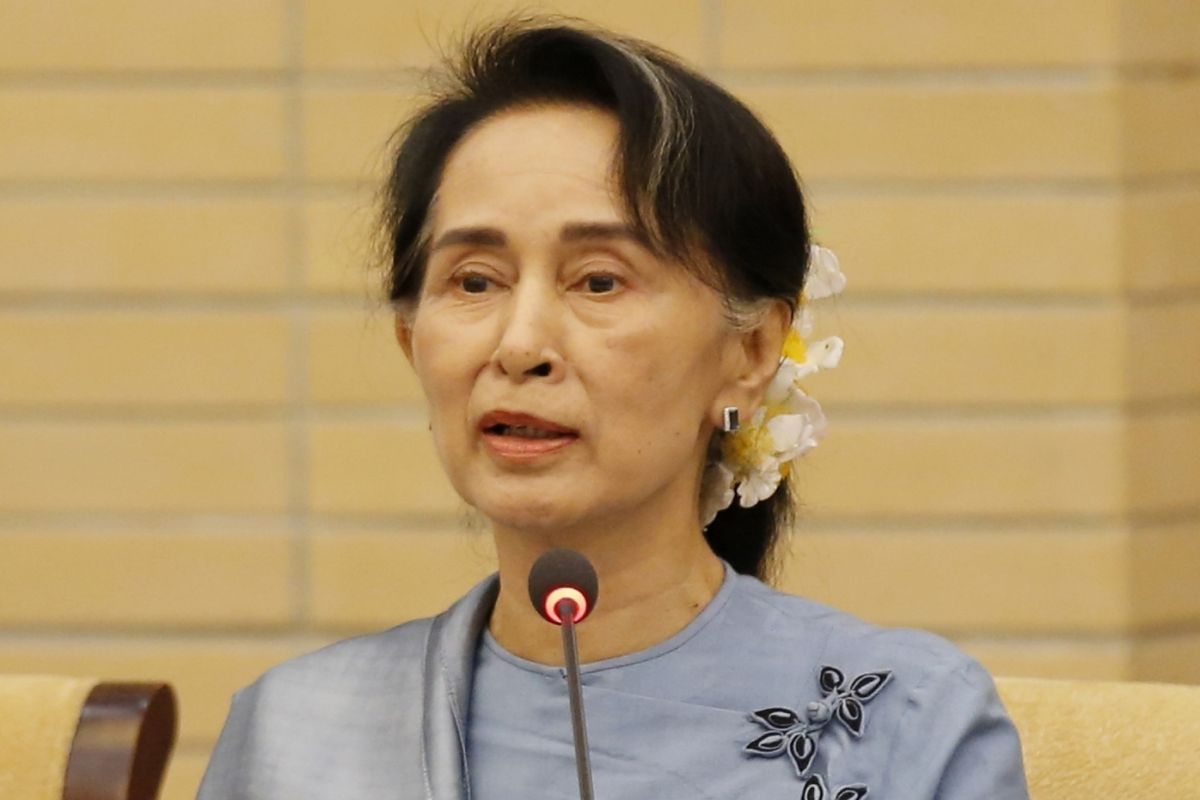EC makes elaborate security for first phase LS polls in 8 UP seats today
The 8 seats where polling would be held in the first phase include Saharanpur, Bijnor, Kairana, Muzaffarnagar, Nagina, Moradabad, Rampur, and Pilibhit.
So, as the West continues dilly-dallying over providing direct support to the Aung San Suu Kyi-led National League for Democracy due to her vilification on the Rohingya issue, Asean makes the right noises in support of pro-democracy protesters but seems unwilling to do anything more, and Beijing waits patiently in the wings as its influence in Myanmar grows, India has a decision to make.

Myanmar State Counselor Aung San Suu Kyi. (File Photo: IANS)
The use of lethal weapons against unarmed civilians by Myanmar’s security forces during anti-coup protests over the past month that have led to a mounting death toll ~ the final tally may never be known given the harsh censorship laws in place ~ has been condemned by most in the comity of nations.
Yet, cynicism persists that these condemnations are pro-forma in nature and unlikely to lead to substantive measures to pressurise the junta into backing off. Sanctions are the worst idea in terms of the range of options available to the outside world not only because they will punish ordinary citizens rather than undermine the military but also because China, which is thought to wield significant influence on the Tatmadaw, is not likely to adhere to any such move.
So, as the West continues dilly-dallying over providing direct support to the Aung San Suu Kyi-led National League for Democracy due to her vilification on the Rohingya issue, Asean makes the right noises in support of pro-democracy protesters but seems unwilling to do anything more, and Beijing waits patiently in the wings as its influence in Myanmar grows, India has a decision to make.
Advertisement
The options for New Delhi are limited but it is not all hopeless. Provided, of course, South Block’s core objective is well-defined. Focusing on Myanmar fits perfectly into India’s strategic architecture under the aegis of both its Look East/Act East and Neighbourhood First policies. It is a neighbouring country with which India shares deep cultural links, growing economic ties, and vital security interests especially in light of China’s ‘encirclement policy’.
India is also in a unique position to leverage the rapport it shares with both the main democratic force in Myanmar, the NLD, and the military establishment. While the former has been a relationship built from Jawaharlal Nehru’s time and assiduously nurtured by successive administrations, the latter was put into place by the AB Vajpayee administration with the late Jaswant Singh-Brajesh Mishra duo doing the legwork as it became apparent to even the most ardent Indian democrat that the Army was a key player in Myanmar politics. So, what is to be done?
It is a much-abused term in diplomatic circles nowadays but the role of an honest broker between Ms Suu Kyi and the Generals is possibly vacant. China doesn’t have the NLD’s trust and the West is viscerally opposed to the Tatmadaw and lukewarm towards Ms Suu Kyi. Asean, despite the concerns of Muslim-majority Malaysia and Indonesia given the emotive tug of the Rohingya issue, is keen on a return to status quo ante wherein an accommodation between the NLD-run government and the army was working till Senior General Min Aung Hlaing got insecure about his political future and pulled the plug on the collaboration. It would be fair to say, in sum, that nearly all players with skin in the game are looking for regional stability, economic opportunity, and steady democratisation in Myanmar. India needs to get in there now.
Advertisement